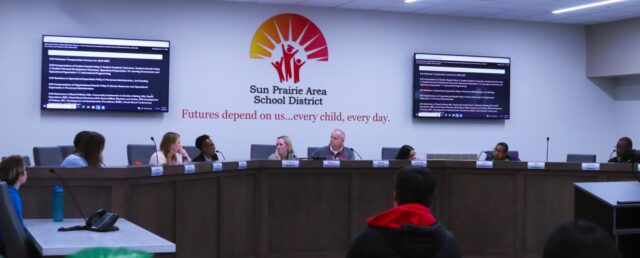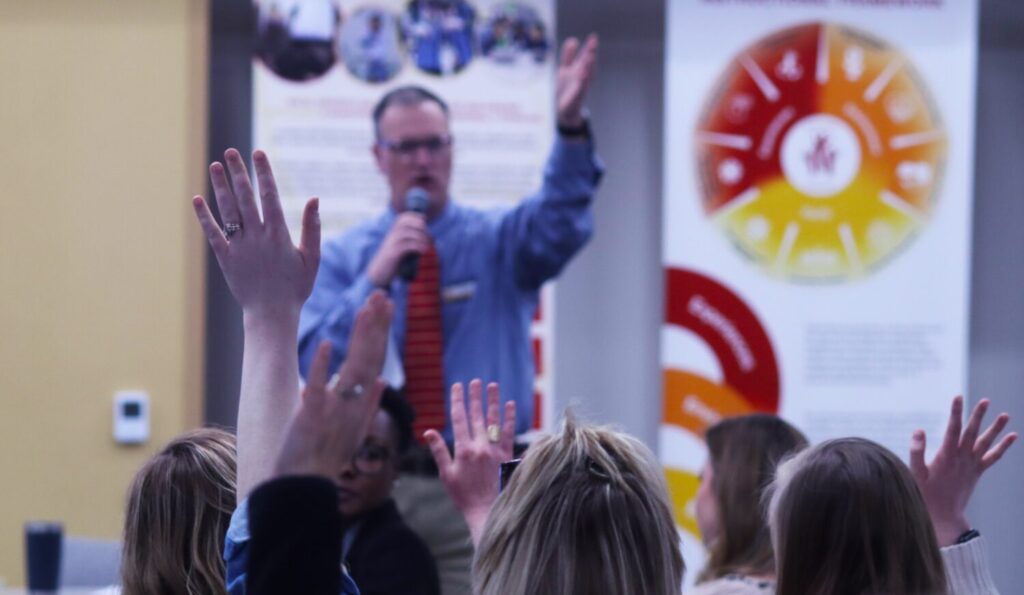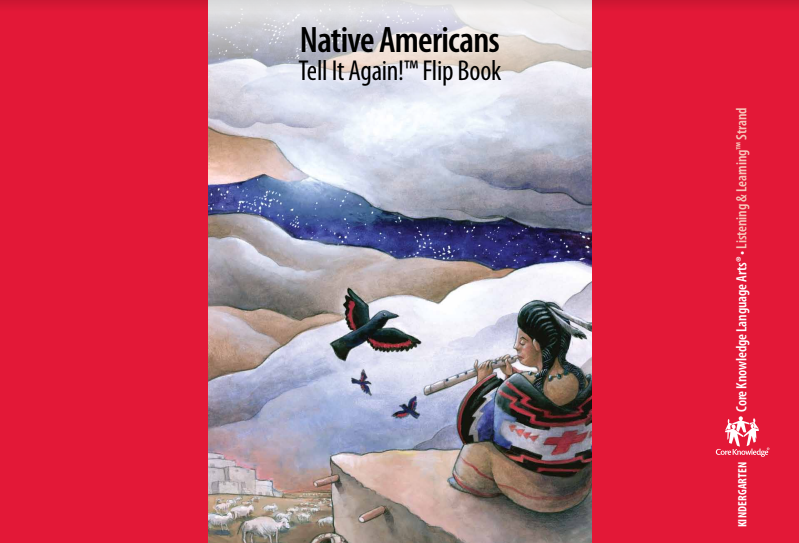
The Sun Prairie School Board has voted in favor of allocating funds to purchase a controversial curriculum that educators and community members find to be controversial.
On March 11, the Sun Prairie School Board voted 4-2 in favor of purchasing a curriculum deemed effective, but, as acknowledged by educators and the board, has many problematic issues in how it depicts Native Americans as “wandering” and encourages students to dress in costume to reenact powwows. The curriculum, Core Knowledge Language Arts (CKLA), was developed by the Core Knowledge Foundation, a nonprofit based in Charlottesville, Va. The “Native Americans” unit describes itself as an enrichment activity in CKLA’s curriculum.
The school district gave a presentation to the community to give insight as to why it chose the program and to address issues before the board voted on it.
“We’re seeing some promising early indicators of accelerated growth in kindergarten in first grade based on that,” said Rick Miller, director of elementary teaching, learning and equity at Sun Prairie Area School District. “When we went through the resources, three different times, we saw things that were objectionable that don’t match the equity vision of this community.”

(Photo by Omar Waheed)
For two years, educators with Sun Prairie have explored options on how to better increase literacy in students. While the group of educators found that no curriculum is perfect, CKLA was the most effective. Educators sit behind their decision to choose CKLA and the district has plans to alter material in the curriculum to change or remove completely the problematic material.
Throughout the two years, over 5,300 hours and 50 educators were part of evaluating and researching curriculums before deciding that CKLA was the most optimal despite its issues.
A flood of concerns from parents, educators and community members caused the school board to open the floor to public comment. Out of six who gave public comments on the issue, four speakers, consisting of parents and teachers, spoke against the curriculum over concerns about its effect on spreading negative information on Native Americans.
“We understand no curriculum is perfect, but we can absolutely do better than CKLA,” said Melissa Grayson, a parent with children in Sun Prairie Schools. “But the most powerful example of chronology [of] why Core Knowledge is absolutely wrong for our children comes from a child that attends a school in Sun Prairie… after completing a kindergarten unit on Native Americans, this child from our community here in Sun Prairie came away with the impression that Native Americans were extinct.”
Two speakers, Cynthia Bell from Meadow View Elementary and Michelle Kelly from Horizon Elementary, both principals in the district, spoke in favor of the curriculum citing its effectiveness despite its issues depicting Native Americans.

“We chose the curriculum that is strongest in its foundational skills and in teacher usability,” Kelly said. “My understanding was there’s more work to be done and Sun Prairie educators have the tools and skills to be critical readers to make sure our students have access to equitable learning resources. We knew we needed to get the materials in our hands.”
Kelly was one of the educators on the committee who looked through the curriculum. She attended every meeting and was behind the team that saw the effectiveness of CKLA but knew that there were issues that needed to be addressed.
Board members were teetering on delaying a vote citing a need for “clarity” on how the Sun Prairie School District would change or remove the materials. Assistant Superintendent Stephanie Leonard outlined a two-month plan to alter the curriculum, which the district will receive a $100,000 discount for, and will cost $40,000 to achieve. The cost for the curriculum is $1.3 million now adjusted to $1.2 million with the discount.
The board does not believe that two months is enough time to comprehensively make sure all harmful content is removed.
All present school board members realized the necessity of the program and its effective learning outcomes. Board members Latoya Holiday and Lisa Goldsberry put heightened emphasis on the necessity of a curriculum that could help Black students achieve higher levels of literacy, but expressed their disappointment that there wasn’t a better alternative.
“The fact that our curriculum doesn’t exist, that is good for reading, and that also doesn’t harm kids is hugely problematic,” Holiday said. “I ran for this board on the platform of wanting to improve reading. That was my number-one reason for running for this board and specifically to improve reading among kids that look like me, because I truly believe that kids can’t read, they can’t access life, they can’t do anything.”
Board member Katey Kamoku mirrored the sentiments of Holiday and Goldsberry, but also drew on existing problems in representation for Indigenous groups like her children who are of native Hawaiian descent.
The Board was pressed to delay a vote within the next two weeks for an emergency meeting pending that the district will give a comprehensive plan and promise that all problematic material will be removed. Leonard urged the board to consider voting in favor now with check-ins on progress to guarantee that the curriculum could be implemented in time for the next school year.



























